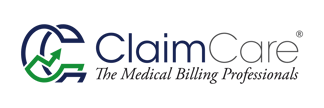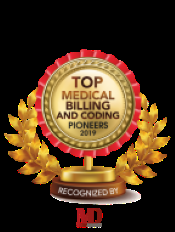For COVID-19 vaccines administered on or after March 15, 2021, the national average payment rate for physicians, hospitals, pharmacies and other immunizers will be $40 per dose.

This represents an increase from approximately $28 to $40 for the administration of single-dose vaccines, and an increase from approximately $45 to $80 for the administration of COVID-19 vaccines requiring two doses.
The exact payment rate for administration of each dose of a COVID-19 vaccine will depend on the type of entity that furnishes the service and will be geographically adjusted based on where the service is furnished.
This new and higher payment rate will support important actions taken by providers that are designed to increase the number of vaccines they can furnish each day, including establishing new or growing existing vaccination sites, conducting patient outreach and education, and hiring additional staff.
At a time when vaccine supply is growing, Centers for Medicare & Medicaid Services (CMS) is supporting provider efforts to expand capacity and ensure that all Americans can be vaccinated against COVID-19 as soon as possible.
CMS is updating the set of toolkits for providers, states, and insurers to help the health care system swiftly administer the vaccine with these new Medicare payment rates. These resources are designed to increase the number of providers that can administer the vaccine, ensure adequate payment for administering the vaccine to Medicare beneficiaries, and make it clear that no beneficiary, whether covered by private insurance, Medicare or Medicaid, should pay cost-sharing for the administration of the COVID-19 vaccine.
Coverage of COVID-19 Vaccines
As a condition of receiving free COVID-19 vaccines from the federal government, vaccine providers are prohibited from charging patients any amount for administration of the vaccine. To ensure broad and consistent coverage across programs and payers, the toolkits have specific information for several programs, including:
Medicare: Beneficiaries with Medicare pay nothing for COVID-19 vaccines and there is no applicable copayment, coinsurance or deductible.
Medicare Advantage (MA): For calendar years 2020 and 2021, Medicare will pay providers directly for the COVID-19 vaccine (if they do not receive it for free) and its administration for beneficiaries enrolled in MA plans. MA plans are not responsible for paying providers to administer the vaccine to MA enrollees during this time. Like beneficiaries in Original Medicare, Medicare Advantage enrollees also pay no cost-sharing for COVID-19 vaccines.
Medicaid: State Medicaid and CHIP agencies must provide vaccine administration with no cost sharing for nearly all beneficiaries during the public health emergency (PHE) and at least one year after it ends. Through the American Rescue Plan Act signed by President Biden on March 11, 2021, the COVID-19 vaccine administration will be fully federally funded. The law also provides an expansion of individuals eligible for vaccine administration coverage. There will be more information provided in upcoming updates to the Medicaid toolkit at Toolkit.
Private Plans: CMS, along with the Departments of Labor and Treasury, is requiring that most private health plans and issuers cover the COVID-19 vaccine and its administration, both in-network and out-of-network, with no cost- sharing during the public health emergency (PHE). Current regulations provide that out-of-network rates must be reasonable, as compared to prevailing market rates, and reference the Medicare reimbursement rates as a potential guideline for insurance companies. In light of CMS’s increased Medicare payment rates, CMS will expect commercial carriers to continue to ensure that their rates are reasonable in comparison to prevailing market rates.
Uninsured: For individuals who are uninsured, providers may submit claims for reimbursement for administering the COVID-19 vaccine to individuals without insurance through the Provider Relief Fund, administered by the Health Resources and Services Administration (HRSA).
More information on Medicare payment for COVID-19 vaccine administration – including a list of billing codes, payment allowances and effective dates – is available at Vaccine Shot Payment.
More information regarding the Centers for Disease Control and Prevention (CDC) COVID-19 Vaccination Program Provider Requirements, and how the COVID-19 vaccine is provided at 100% no-cost to recipients is available at Provider Support.
Information on the COVID-19 Claims Reimbursement to Health Care Providers and Facilities for Testing, Treatment, and Vaccine Administration for the Uninsured Program is available at Covid-19 Uninsured.
To view the complete Centers for Medicare & Medicaid Services (CMS) announcement, click Vaccine Payments.
To contact CMS Media Relations: (202) 690-6145 or CMS Media Inquiries.

About ClaimCare ®
ClaimCare has 30 years of medical billing experience. We have an established 100% USA-Based medical billing team that has been assembled through a thorough pre-employment screening. All personnel participate in on-going training and strong process management to ensure they deliver only the highest quality medical billing services to clients.
ClaimCare has once again been named a “Top 10 Medical Billing and Coding Company.” The honor this time comes from MD Tech Review. The magazine’s Augmenting Medical Billing and Coding Operations article presents solid reasons why ClaimCare has been chosen for this 2019-2020 recognition.

For more information, contact sales@claimcare.net, or phone toll-free at (855) 376-7631, or visit the ClaimCare Medical Billing Company website. We can assist your practice and/or facility in numerous ways, including complete certification processing.
100% USA-Based HIPAA-Compliant Medical Billing Company


 ClaimCare Medical Billing, 100% USA-based, has once again been named a ‘Top 10 Medical Billing and Coding Company.’ The honor this time comes from MD Tech Review. The magazine’s
ClaimCare Medical Billing, 100% USA-based, has once again been named a ‘Top 10 Medical Billing and Coding Company.’ The honor this time comes from MD Tech Review. The magazine’s  Do you know that “surveys consistently demonstrate that patients prioritize both the interpersonal attributes of their providers and their individual relationships with providers above all else?” This is the statement made by Kurt Strange, an expert in family and health systems in one of the articles published in
Do you know that “surveys consistently demonstrate that patients prioritize both the interpersonal attributes of their providers and their individual relationships with providers above all else?” This is the statement made by Kurt Strange, an expert in family and health systems in one of the articles published in 

 Medical billing reports are important in evaluating the efficiency of your practice. Thus, reports should show the performance of your organization in full details. This will greatly help in improving your revenue cycle.
Medical billing reports are important in evaluating the efficiency of your practice. Thus, reports should show the performance of your organization in full details. This will greatly help in improving your revenue cycle. Looking back, to look ahead: With ICD-11 on the horizon for 2022,
Looking back, to look ahead: With ICD-11 on the horizon for 2022,  On December 15, 2015, Jason Adam Townsend, owner of a medical billing company, was indicted on
On December 15, 2015, Jason Adam Townsend, owner of a medical billing company, was indicted on  Some of the crucial elements in the medical claims process happen during the medical coding and medical billing procedures.
Some of the crucial elements in the medical claims process happen during the medical coding and medical billing procedures. Is your in-house medical billing costing more than you can handle? How is this compromising your organization's efficiency?
Is your in-house medical billing costing more than you can handle? How is this compromising your organization's efficiency? Last July, the Centers for Medicare and Medicaid Services (CMS) released a proposed payment rule for the Ambulatory Surgery Center Association (ASCA) and Hospital Outpatient Departments (HOPDs) for 2019. These updates address several long-requested ASCA priorities, which include the following:
Last July, the Centers for Medicare and Medicaid Services (CMS) released a proposed payment rule for the Ambulatory Surgery Center Association (ASCA) and Hospital Outpatient Departments (HOPDs) for 2019. These updates address several long-requested ASCA priorities, which include the following: